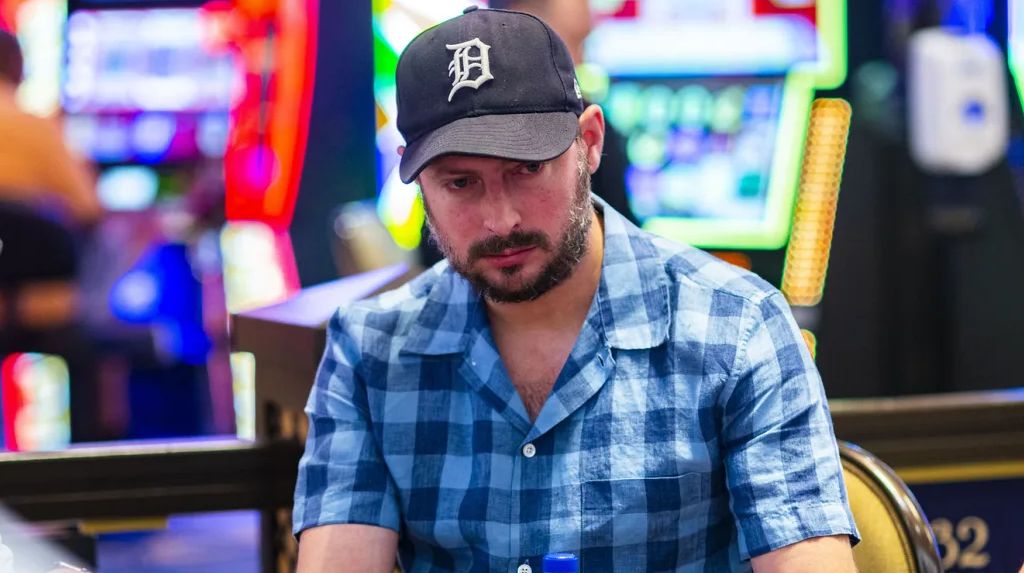Poker, Forecasting, and Controlled Addiction
In Episode 20 of the GTO LAB Podcast, Jonathan Jaffe sits down with statistician, writer, and poker player Nate Silver for a wide-ranging conversation that blends poker theory with decision-making frameworks from other disciplines. Silver’s new book On the Edge serves as the backdrop for much of the discussion, but the conversation stays poker-heavy throughout, exploring risk management, image, incentives, and the psychology of competition.

Forecasting, Risk, and Optionality
The episode opens with a focus on forecasting and how the probabilistic thinking that drives election models connects to poker strategy. Silver explains that both fields require decision-making under uncertainty, where players and forecasters must balance risk and reward while dealing with incomplete information. The discussion centers around optionality, a key concept in both poker and forecasting. Silver points out that many players undervalue their future options at the table, especially when making marginal calls that risk their tournament life.
Jaffe and Silver use real-world metaphors like “stiffing people for dinner” to describe strategic folding and stack preservation. Silver emphasizes that decision quality should not be measured by short-term results but by how well a choice maintains flexibility and future EV potential. This idea of preserving optionality applies across disciplines, from career management to tournament poker.
GTO vs Exploit: Population Tendencies and Real EV
The conversation shifts toward the theory-versus-practice debate that defines much of modern poker study. Silver expresses skepticism about players who spend most of their time fine-tuning small GTO details while ignoring large, obvious population leaks. He argues that the biggest EV jumps come from targeting consistent population errors, such as overfolded rivers or unprotected check-back ranges.
Jaffe and Silver also critique how solver training tools can create an illusion of progress. Improving your score on a trainer feels good, but it may not reflect the kind of strategic leaps that change how you actually construct ranges or interpret board textures. Silver’s preference is to use tools like the GTO LAB ICM Trainer in a conceptual way, studying how small parameter changes affect strategy rather than grinding out minor accuracy improvements.
Image, Incentives, and the River vs The Village
Midway through the episode, the discussion moves toward image and incentives. Silver reflects on how he is perceived at the table and how that perception affects opponents’ strategy. In his early poker days, he benefitted from being viewed as an unknown amateur, but as more players recognize him, that edge has faded.
This ties into a broader point about incentives in poker. Silver and Jaffe talk about “The River” versus “The Village”—shorthand for the high-stakes, solver-driven elite and the larger ecosystem of casual and mid-stakes players. Silver believes that understanding the incentives driving different player types is crucial for maximizing EV. Whether it is a recreational player wanting to make a hero call, or a pro wanting to avoid looking foolish, incentives often matter more than technical ability in shaping actual decisions.
Betting Markets, Bias, and Decision-Making Under Pressure
Another theoretical topic comes up when the conversation turns to betting markets. Jaffe references the 2020 U.S. Presidential Election and the dramatic swings in live betting odds as early results came in. Silver explains why his models remained steady while the betting markets overreacted. He attributes the divergence to structural inefficiencies and emotional bias in the markets.
This leads to a broader discussion about the dangers of overconfidence and anchoring bias, both in betting and in poker. Silver shares that he avoids betting on political events, despite his expertise, because of the potential for conflicts of interest and cognitive bias. The discussion highlights a key takeaway: even experienced decision-makers need to create guardrails to prevent emotional or biased reasoning from creeping in.
Poker as a Controlled Addiction and the Psychology of Risk
In the final part of the conversation, Silver describes tournament poker as a form of controlled addiction. He explains that the structure of tournaments provides a natural limit to financial risk, making it a healthier outlet for competitive and risk-seeking tendencies. Both Jaffe and Silver discuss how poker satisfies a desire for acute stress and high-leverage decision points without the chronic stress of other professions or forms of gambling.
The conversation also touches on intuition and the dangers of miscalibration. Silver and Jaffe agree that instinctive decision-making can be powerful, but only when it is rooted in environments where the player has developed reliable patterns of recognition. They caution against trusting intuition when transitioning between very different poker ecosystems, such as moving from soft live tournaments to tougher high-roller fields.
The episode closes with a reminder that poker, like forecasting, rewards thoughtful process more than short-term outcomes. Whether it is balancing GTO with exploitative adjustments, analyzing incentive structures, or understanding your own psychological drivers, the path to improvement comes from seeing the bigger picture and adjusting to new information with discipline and objectivity.
Final Thoughts
The episode closes with Silver offering three personal recommendations: his neighborhood in the East Village, a poker tip about protecting check-back ranges, and a plug for Sam Greenwood’s Substack, “Punt of the Day.” True to the tone of the whole interview, the recommendations blend humor, self-awareness, and strategic thought.
For poker players and fans of Silver’s work alike, this episode offers a unique blend of statistical reasoning, poker strategy, and life philosophy. It’s a conversation about decision-making under pressure—whether that’s at a final table, in the betting markets, or forecasting a presidential election.
Watch the Full Episode
You can watch the full episode with Nate Silver here:
https://www.youtube.com/watch?v=SS1Awm91nMo
The GTO LAB Podcast isn’t just about poker hands or solver breakdowns. It’s longform, honest, and player-driven conversation. Each episode digs into how elite players think—about poker, risk, psychology, and life. Whether you’re a serious player or just enjoy smart discussions about decision-making under pressure, this series is worth your time.
